How to Prepare Your Family for Estate Planning Conversations

Talking about estate planning with your family is rarely easy. The topic touches on money, mortality, responsibility, and sometimes long-standing family dynamics. Still, avoiding the conversation often creates more stress in the long run. When handled thoughtfully, these discussions can bring clarity, alignment, and real peace of mind.
Here’s how to prepare your family for estate planning conversations in a steady, practical way.
Start with the Right Perspective
Estate planning is not just about assets. It is about protecting the people you love and making sure your wishes are honored. Before starting the conversation, be clear about your intentions. You are not trying to control anyone. You are trying to reduce confusion and prevent unnecessary conflict later.
If you already have documents prepared, review them beforehand so you can explain them clearly. If not, consider meeting with an attorney to understand your options. Most estate plans include a will, possibly a revocable liv...
Why a Will Alone Isn’t Enough to Prevent Probate Disputes

A will is often seen as the ultimate safety net for your estate. You write down who gets what, sign the paperwork, and assume everything will unfold smoothly. In reality, having only a will can still leave plenty of room for confusion, conflict, and even courtroom battles. Probate disputes happen more often than people expect, and a will by itself doesn’t always stop them.
Here’s why.
Wills Still Go Through Probate
The first thing to understand is that a will does not avoid probate. In fact, probate is the legal process that proves a will is valid and oversees how assets are distributed. This process can be slow, public, and emotionally charged. During probate, family members or other interested parties have the opportunity to challenge the will. That’s often where disputes begin.
If someone believes the will is outdated, unfair, or improperly signed, they can raise objections. Even a clearly written will can end up under scrutiny once it enters the probate court.
Ambiguity Create...
What Happens When Family Members Disagree on Medical Care?

Medical emergencies are stressful enough. When family members disagree about what care a loved one should receive, that stress can quickly turn into conflict. These situations are more common than people realize, especially when decisions must be made quickly and emotions are running high.
Understanding how these disagreements unfold and how they’re usually resolved can help families navigate them with less damage and more clarity.
Why disagreements happen
Family conflict around medical care often starts with different interpretations of what’s best. One person may focus on preserving life at all costs, while another prioritizes comfort or quality of life. Past family dynamics, guilt, religious beliefs, cultural values, or unresolved relationships can also influence opinions. In many cases, disagreement isn’t about the medical facts but about fear, love, and the pain of potential loss.
The role of the patient’s wishes
When a patient has clearly documented wishes, such as a living ...
The Most Important Questions to Answer in Your Living Will
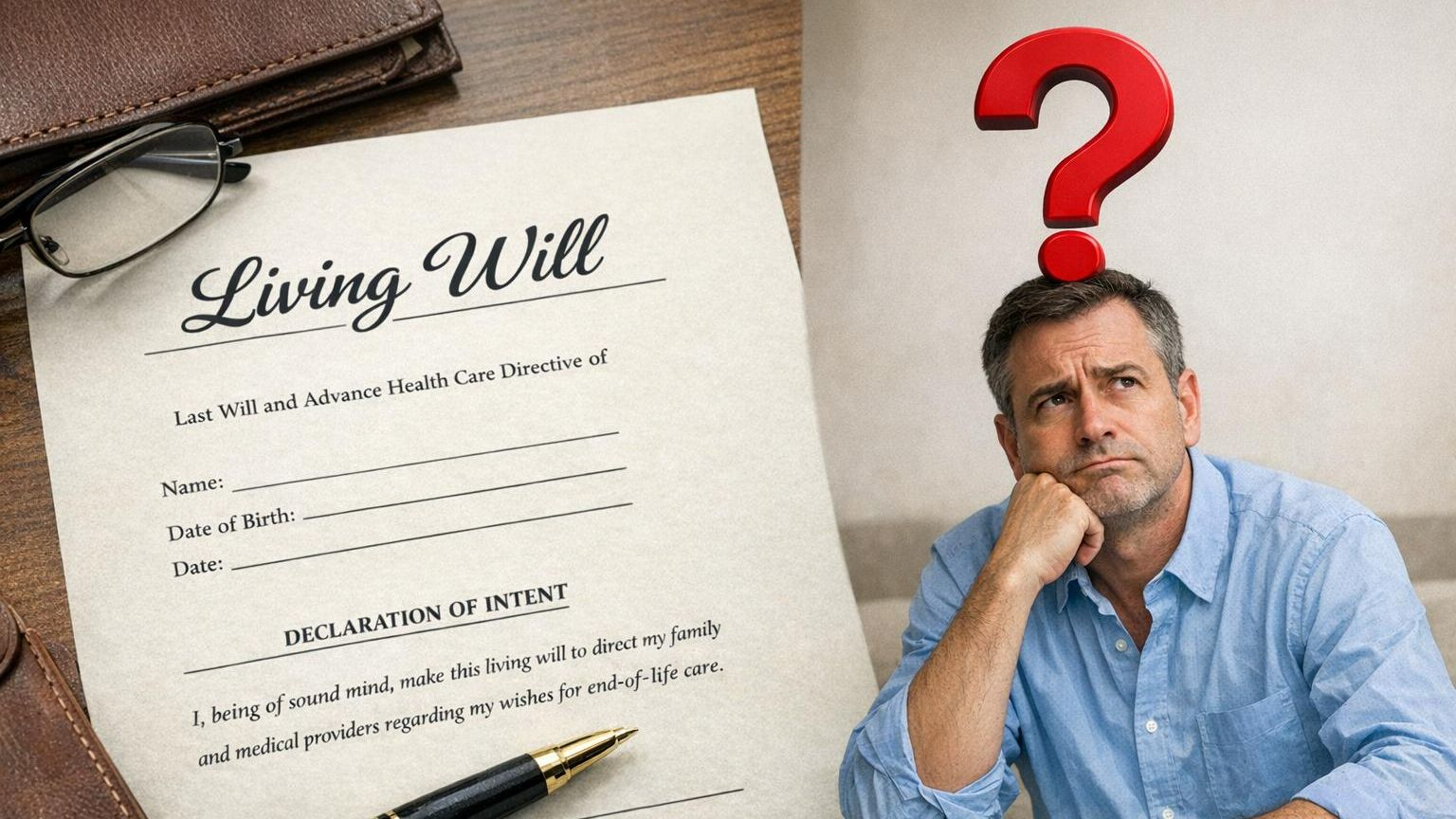
A living will isn’t just a legal document. It’s a way to speak for yourself when you can’t. If you’re ever seriously ill or injured and unable to communicate, your living will guides doctors and loved ones on what you want and what you don’t. The challenge is knowing what questions to answer clearly so there’s no confusion later.
Here are the most important ones to think through.
1. What kind of life-sustaining treatments do you want?
This is the core of a living will. You’ll need to decide how you feel about treatments like ventilators, feeding tubes, dialysis, or CPR. Would you want these used in all situations, only temporarily, or not at all if recovery isn’t likely? There’s no right answer here. Some people want every possible measure taken. Others prefer comfort-focused care if the outcome is unlikely to improve their quality of life.
2. How do you define “quality of life”?
This question is deeply personal, but incredibly important. Would you be comfortable living with sever...
What Happens if You Forget to Update Your Beneficiary?
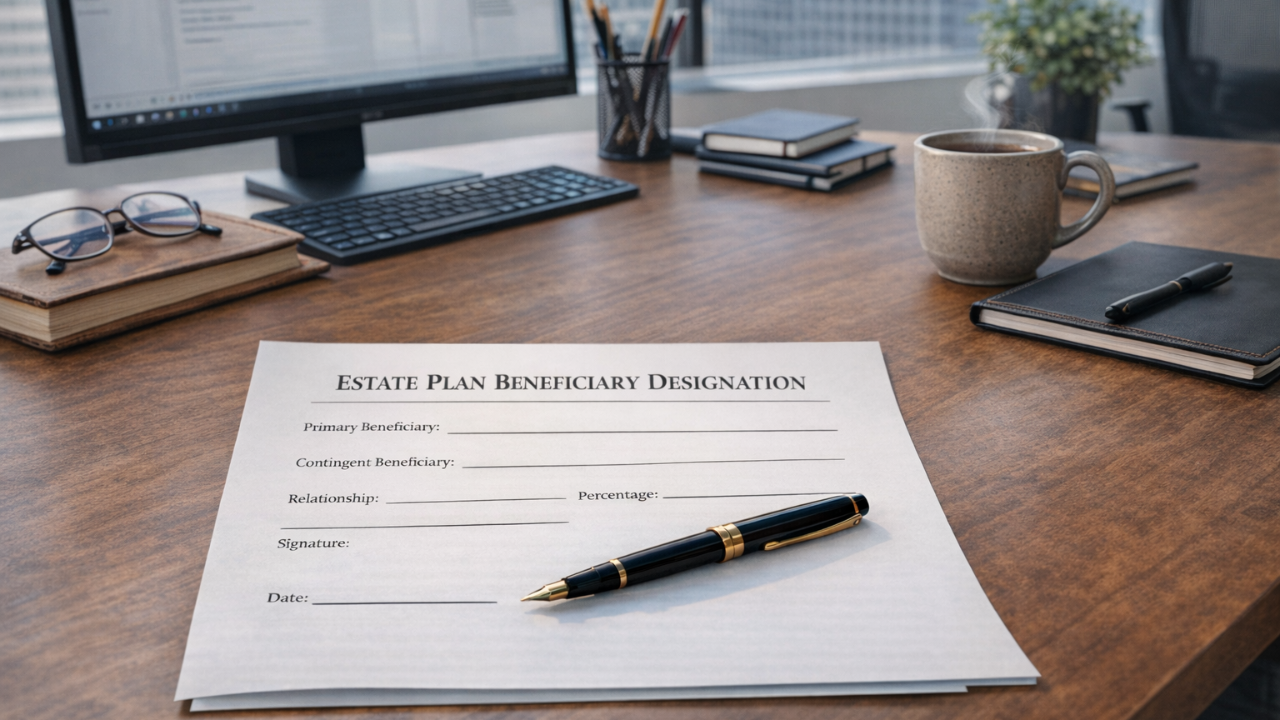
Life changes fast. Marriages, divorces, new children, career shifts, and losses all affect how we plan for the future. One detail that often gets overlooked during these transitions is updating beneficiary designations. It may seem minor, but forgetting to update a beneficiary can lead to serious financial and emotional consequences.
What Is a Beneficiary and Where It Applies
A beneficiary is the person or entity you name to receive assets after your death. Beneficiaries are commonly assigned on life insurance policies, retirement accounts like 401(k)s and IRAs, pensions, payable-on-death bank accounts, and investment accounts.
These designations are powerful. In most cases, beneficiary forms override what is written in a will. That means even a carefully drafted estate plan can be undone by an outdated beneficiary designation.
What Happens When Beneficiaries Are Outdated
If you forget to update your beneficiary, the asset typically goes to the person listed on the account, regard...
2026 Estate Planning Checklist: Start the Year Prepared
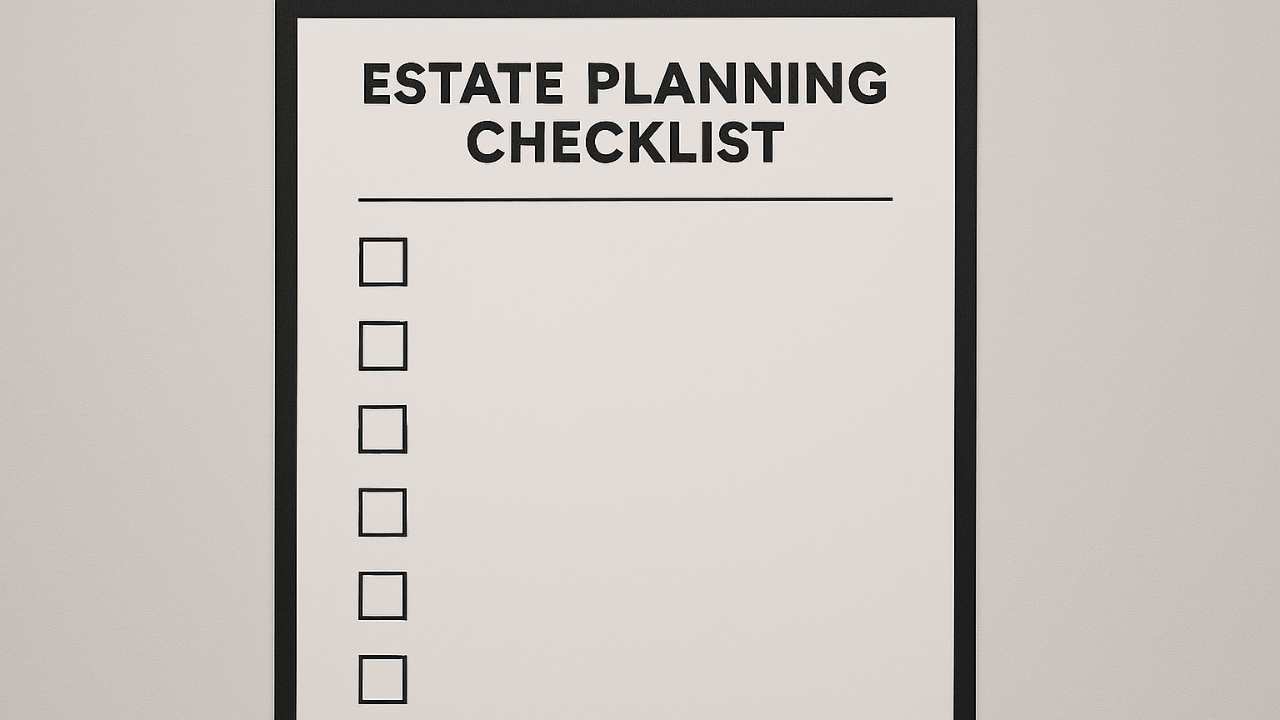
Starting a new year always brings a sense of possibility, and one of the smartest ways to set yourself up for stability is by getting your estate plan in order. It’s not just for the wealthy or older adults—anyone with assets, responsibilities, or people who rely on them benefits from a clear, well-built plan. Here’s a practical checklist to help you walk into 2026 feeling ready, protected, and organized.
Review and Update Your Will
If it’s been more than a year since you last looked at your will, now’s a great time to revisit it. Life moves fast—maybe you bought property, welcomed a child, or made major career changes. Your will should reflect what your life looks like today, not three years ago. Make sure your beneficiaries, executors, and instructions still match your goals.
Read more: Things to Consider When Updating Your Estate Plan
Revisit Your Beneficiary Designations
Some of your most important assets—like life insurance policies, retirement accounts, and bank accounts—use...
Estate Planning Essentials to Secure Your Children’s Future
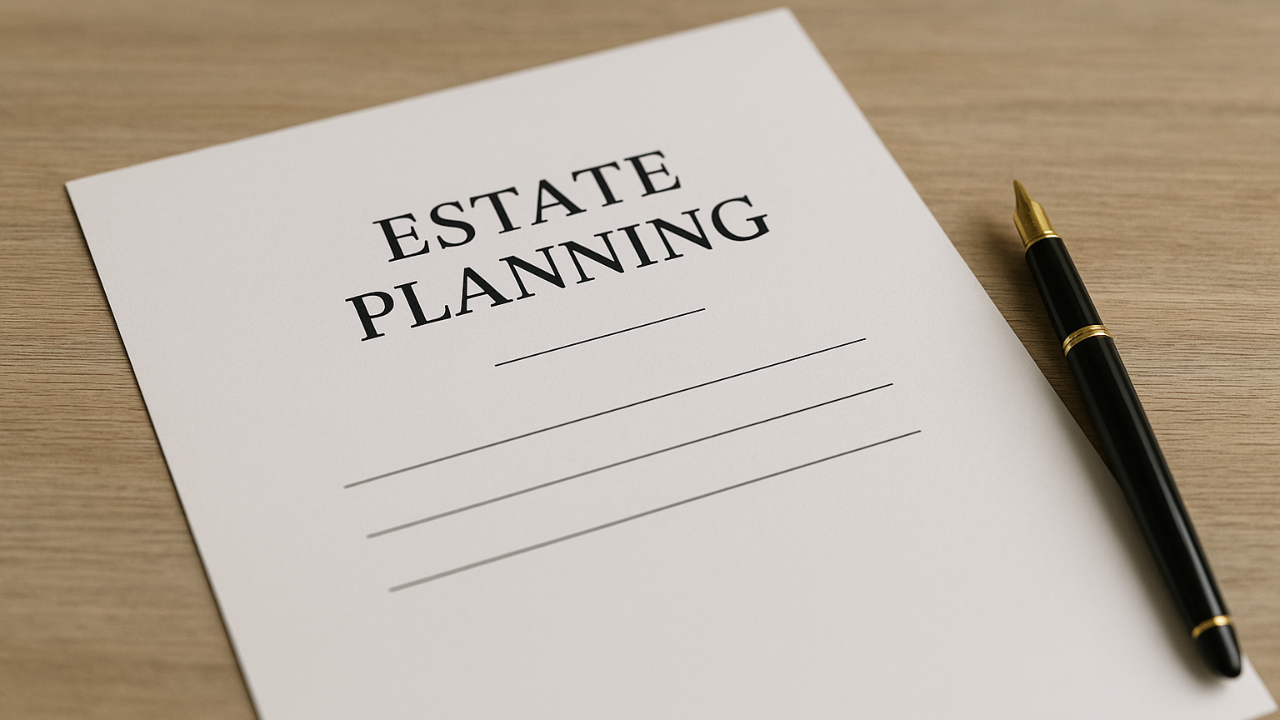
Thinking about the future isn’t always comfortable, especially when it involves preparing for the “what ifs.” But if you have children—especially young ones—estate planning is one of the most meaningful gifts you can give them. It’s not just about money or property. It’s about making sure they’re protected, supported, and set up for stability no matter what life brings.
Here are the key pieces every parent should have in place.
1. Choose the Right Guardians
If your children are minors, naming a guardian is one of the most important decisions you’ll make. This person will be responsible for raising your kids if you’re no longer able to. Think about who shares your values, parenting style, and long-term stability. It’s also a good idea to name an alternate guardian in case your first choice can’t serve. And remember: talk to the person you’re choosing. Nobody wants a surprise responsibility of this magnitude.
Read more: What Is Guardianship Planning? - A Comprehensive Guide to Protec...
How Overlooking Digital Assets Can Complicate Your Estate

Estate planning used to be mostly about physical property—your home, your car, your bank accounts, and the family heirlooms you want to pass down. But today, a large part of your life lives online. From social media accounts to cloud storage, cryptocurrency to online banking, your digital footprint is bigger than you may realize. When those assets are left out of an estate plan, it can create unnecessary stress, delays, and confusion for the people handling your affairs.
Digital assets aren’t always obvious to your family
Most people assume their loved ones will simply “figure it out,” but digital assets often have no physical trail. There’s no paper statement, no safe deposit box, and no stack of documents in a filing cabinet. Without clear instructions, your executor may not even know certain accounts exist. This becomes a major problem if those accounts hold value—like crypto wallets, investment apps, or digital payment platforms.
Even non-financial assets matter. Email accounts,...
Why DIY Wills Often Fail: Lessons from Estate Planning Experts
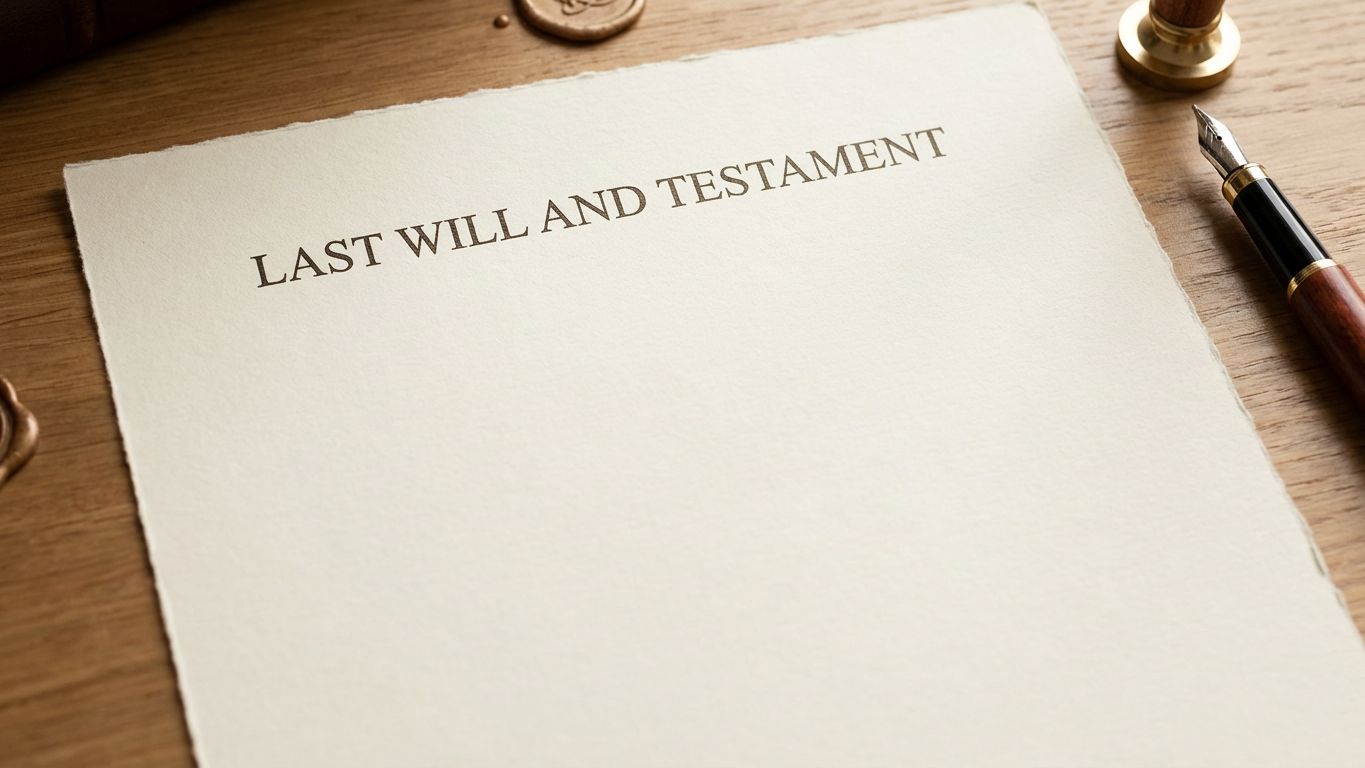
Planning for what happens after you're gone isn’t exactly anyone’s idea of a fun weekend project, which is why DIY wills can look tempting. They seem quick, cheap, and straightforward—until they’re not. Estate planning attorneys see the fallout from these homemade documents all the time, and the pattern is surprisingly consistent: small mistakes turn into big problems. If you’re thinking about writing your own will, here’s what experts say you should know before you grab a template and fill in the blanks.
The language has to be exact—guesswork isn’t an option
A will is a legal document, and the law doesn’t leave much room for “close enough.” Online templates assume every family looks the same and every situation is simple. In reality, the wording has to be very specific. A single unclear sentence can lead to a court battle or assets going to the wrong person. Estate attorneys spend years learning how to draft language that holds up under scrutiny because judges interpret wills litera...
Passing on More Than Memories: How VA Benefits Can Support Your Loved Ones

When a veteran passes away, they leave behind more than memories of service and sacrifice—they leave a legacy. One of the most meaningful ways to honor that legacy is by ensuring their loved ones receive the support and benefits they’ve earned. The U.S. Department of Veterans Affairs (VA) offers several programs designed to help surviving spouses, children, and dependents achieve financial stability and access essential services during a difficult time.
Financial Support for Families
The most recognized form of support is the Dependency and Indemnity Compensation (DIC). This tax-free monthly payment is available to surviving spouses, children, or parents of service members who died in the line of duty or from a service-related condition. It can help offset the loss of income and provide ongoing financial security for families adjusting to life after loss.
Additionally, surviving family members may be eligible for Survivors Pension, a needs-based benefit for low-income, unremarried s...